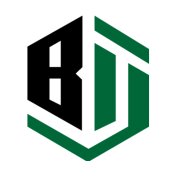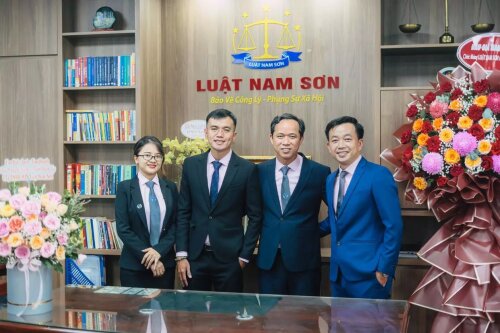Best Restructuring & Insolvency Lawyers in Khanh hoa
Share your needs with us, get contacted by law firms.
Free. Takes 2 min.
List of the best lawyers in Khanh hoa, Vietnam
About Restructuring & Insolvency Law in Khanh hoa, Vietnam
Restructuring and insolvency law in Khanh hoa, Vietnam is designed to address situations where individuals or businesses are struggling to meet their financial obligations. This field involves legal processes that allow companies or individuals to restructure their debts or, if necessary, undergo formal insolvency procedures. Depending on the circumstances, this might include debt negotiations, business reorganization, or liquidation of assets to satisfy creditors. The legal framework aligns with Vietnam's national laws but can have specific applications and procedures at the provincial level, including in Khanh hoa. These processes aim to balance the rights and interests of debtors and creditors while seeking to preserve business value and employment wherever possible.
Why You May Need a Lawyer
Seeking legal advice is crucial when dealing with restructuring and insolvency matters in Khanh hoa for several reasons. The processes can be complex and may involve negotiations with multiple creditors, navigating regulatory requirements, or defending against lawsuits from creditors. People usually need the assistance of a lawyer in the following situations:
- Your business is facing financial distress and you are unsure of your options.
- You need to negotiate with creditors or restructure existing debts.
- You are at risk of insolvency or bankruptcy proceedings being initiated against you.
- You want to protect your assets and minimize personal or corporate liability.
- You are a creditor seeking to secure outstanding debts or maximize recovery from insolvent parties.
- You are involved in cross-border transactions and insolvency matters.
- You require guidance on compliance with local or national regulations governing insolvency and restructuring.
- You need to understand the impact of insolvency on contracts, employment, or ongoing business operations.
A qualified restructuring and insolvency lawyer can help you understand your rights and obligations, develop a strategy, and represent your interests in negotiations or court proceedings.
Local Laws Overview
Restructuring and insolvency in Khanh hoa are governed primarily by Vietnam's Law on Bankruptcy (2014) and the Civil Code, as well as local regulations and policies implemented by the People's Committee in Khanh hoa province. Key aspects include:
- Bankruptcy Proceedings: Initiated when individuals or businesses are unable to pay their debts after a certain period as defined by law.
- Reorganization Options: Debtors may propose a reorganization plan to restructure their debts and business operations, subject to creditor approval and court oversight.
- Role of the Court: The local People’s Court in Khanh hoa has jurisdiction over insolvency cases and appoints trustees or asset managers to oversee proceedings.
- Powers of Creditors: Creditors' committees play a critical role in the acceptance or rejection of reorganization plans and liquidation procedures.
- Asset Distribution: Assets are distributed according to the legal priority of claims, with secured creditors, employees, and tax authorities typically having preferential claims.
- Out-of-Court Settlements: Parties may also seek negotiated settlements or mediation facilitated by local authorities or lawyers before resorting to formal court processes.
- Personal Liability: Business owners, especially those of sole proprietorships or partnerships, may be personally liable for certain debts unless limited liability protections apply.
Understanding these legal frameworks is essential for making informed decisions and protecting your interests in a restructuring or insolvency situation in Khanh hoa.
Frequently Asked Questions
What is the difference between restructuring and insolvency?
Restructuring involves reorganizing a company's finances or operations to return to profitability, often through negotiations with creditors. Insolvency is the legal state where an individual or business cannot pay their debts as they come due and may result in formal bankruptcy proceedings.
Can I file for bankruptcy voluntarily?
Yes, in Vietnam, both individuals and businesses can initiate bankruptcy proceedings if they meet the criteria for insolvency under the law.
What happens to my assets during insolvency proceedings?
Your assets may be managed or liquidated by a court-appointed trustee or asset manager during insolvency proceedings to satisfy creditor claims according to the priorities set by law.
How are employees affected when a company goes bankrupt?
Employees are typically given priority when it comes to payment of wages, severance, and other benefits from available assets in bankruptcy proceedings.
Am I personally liable for my business debts?
This depends on your business structure. Owners of sole proprietorships or partnerships may be personally liable, while owners of limited liability companies or joint-stock companies may have some protection, except in cases of personal guarantees or misconduct.
Can creditors force me into bankruptcy?
Yes, creditors can petition the court to start bankruptcy proceedings against you or your business if you are unable to meet your debt obligations.
Is it possible to avoid insolvency through negotiation?
Yes, many insolvency situations are resolved through debt restructuring, out-of-court settlements or mediation. A lawyer can help negotiate terms that may allow you to avoid formal bankruptcy.
How long do insolvency proceedings take in Khanh hoa?
The duration can vary depending on the complexity of the case, the willingness of parties to cooperate, and court schedules. Some cases can be resolved in several months, while others may take years.
Do I need a lawyer to proceed with restructuring or bankruptcy?
While not strictly required, having a lawyer with experience in restructuring and insolvency is highly recommended for protecting your rights, navigating procedural requirements, and maximizing your outcomes.
What should I do if I receive a court summons related to insolvency?
You should seek legal advice immediately. Ignoring a summons can result in a default judgment or loss of certain rights. A lawyer can advise you on the best response and represent your interests.
Additional Resources
If you need more information or assistance with restructuring and insolvency in Khanh hoa, consider contacting the following organizations and resources:
- Khanh hoa Department of Justice - Provides information on local laws and legal procedures.
- People's Court of Khanh hoa - Handles bankruptcy and insolvency cases.
- Vietnam Bar Federation and Khanh hoa Bar Association - Lists qualified lawyers and legal advisors in the region.
- Local business associations or chambers of commerce - Often provide support for businesses facing financial difficulties.
- Vietnam Ministry of Justice - Publishes updates and guidance on bankruptcy and restructuring regulations.
Next Steps
If you are facing financial difficulties or anticipate restructuring or insolvency proceedings in Khanh hoa, Vietnam, it is important to act quickly and proactively. Here are the recommended steps:
- Assess your financial situation and gather relevant documents related to your debts, assets, and business operations.
- Seek advice from a qualified restructuring and insolvency lawyer practicing in Khanh hoa to understand your legal options and rights.
- Communicate openly with your creditors where possible, as early negotiation can help prevent escalation.
- Follow legal procedures closely and adhere to court or regulatory deadlines if you become involved in formal proceedings.
- Utilize resources provided by local authorities or professional associations for additional guidance and support.
Early legal intervention can increase the chances of a favorable resolution, whether through out-of-court restructuring, negotiation, or formal insolvency proceedings. Do not hesitate to seek professional help tailored to your specific circumstances in Khanh hoa.
Lawzana helps you find the best lawyers and law firms in Khanh hoa through a curated and pre-screened list of qualified legal professionals. Our platform offers rankings and detailed profiles of attorneys and law firms, allowing you to compare based on practice areas, including Restructuring & Insolvency, experience, and client feedback.
Each profile includes a description of the firm's areas of practice, client reviews, team members and partners, year of establishment, spoken languages, office locations, contact information, social media presence, and any published articles or resources. Most firms on our platform speak English and are experienced in both local and international legal matters.
Get a quote from top-rated law firms in Khanh hoa, Vietnam — quickly, securely, and without unnecessary hassle.
Disclaimer:
The information provided on this page is for general informational purposes only and does not constitute legal advice. While we strive to ensure the accuracy and relevance of the content, legal information may change over time, and interpretations of the law can vary. You should always consult with a qualified legal professional for advice specific to your situation.
We disclaim all liability for actions taken or not taken based on the content of this page. If you believe any information is incorrect or outdated, please contact us, and we will review and update it where appropriate.










